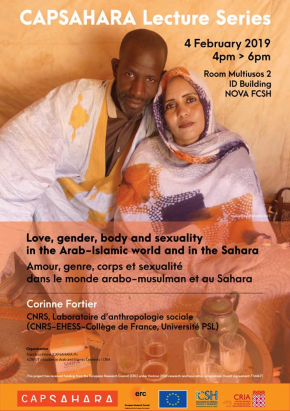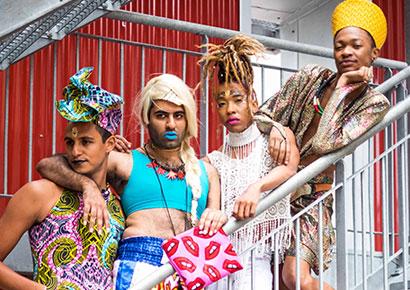gender
Posts com a etiqueta gender
Arquivo
Autor
- administrador
- adrianabarbosa
- Alícia Gaspar
- arimildesoares
- camillediard
- candela
- catarinasanto
- claudiar
- cristinasalvador
- franciscabagulho
- guilhermecartaxo
- herminiobovino
- joanapereira
- joanapires
- keitamayanda
- luisestevao
- mariadias
- marialuz
- mariana
- marianapinho
- mariapicarra
- mariaprata
- martacacador
- martalanca
- martamestre
- nadinesiegert
- Nélida Brito
- NilzangelaSouza
- otavioraposo
- raul f. curvelo
- ritadamasio
- samirapereira
- Victor Hugo Lopes
Data
- Janeiro 2026
- Dezembro 2025
- Novembro 2025
- Outubro 2025
- Setembro 2025
- Agosto 2025
- Julho 2025
- Junho 2025
- Maio 2025
- Abril 2025
- Março 2025
- Fevereiro 2025
Etiquetas
- Agualusa
- AND Lab
- Arrastown
- Bayreuth
- bolsa investigação
- Cinema e Descolonização: Moçambique em foco
- cinema italiano
- Claire Fontaine
- festa de abertura MEIOFIO
- heranças e inovações
- João Luís Carrilho da Graça e marta lança
- morte
- Pipas Forjaz
- Plataforma Guetto
- Processo dos 50
- raum
- Samuel Fosso
- Tristan Tzara
- turbulências
- writers
Mais lidos
- Memory Activism Across the Lusophone World: (Im)Possibilities of Decolonial Practice (Special Issue - Portuguese Studies Review)
- "Úlcera, Útero", de Brassalano Graça
- METEORIZAÇÕES, Filipa César et al
- Ateliê Mutamba, Luanda
- Palestras na Nova FCSH
- Set-up: Podcast sobre dança contemporânea portuguesa anuncia terceira temporada
- ESTREIA DE OURO NEGRO
- "Colonialismo vs. Descolonização", de Maria Clara Anacleto e Raquel Ascensão
 [CAPSAHARA Lecture Series ] CNRS, Laboratoire d’Anthropologie Sociale (CNRS-EHESS-Collège de France, Université PSL)
[CAPSAHARA Lecture Series ] CNRS, Laboratoire d’Anthropologie Sociale (CNRS-EHESS-Collège de France, Université PSL) “In Africa public discourses, by authority figures like politicians and religious leaders, concerning gender often refer to moral identities rooted in sociocultural beliefs and religion. At the same time, human rights concerning sexuality and reproduction, are sometimes frowned upon as tokens of westernisation. These regimes of representation and public performances invoking social norms and african identities, are political tools. And even if gender cannot be adopted uncritically in african contexts, without the risk of misrepresenting important social dynamics, such as seniority (Oyewumi), efforts to downplay its importance as a descriptive tool do more for conservative, nativist agendas, and power dynamics associated with violence and inequality, than for human rights, a language that is not the language most people use to describe their problems.However, activisms for sexual citizenship and gender often work precisely on discursive levels (but not only) to convey new languages to people in order for rights to be claimed. By creating new spaces for debate activisms help deconstruct normativity as the only narrative and generate new forms of social commentary oriented towards better informed decisions for individuals, even if in their lives structural constraints remain a reality. Technology also helps boost this approach by expanding outreach, registering, giving more visibility.In this panel we welcome scholars to rethink gender as an analytical tool from a decolonial, decentered, pluralist, critical perspective by taking into account current activisms in gender in areas such as GBV, sexual violence, FGM/C, education, alongside discourses opposing social change and invoking social norms.
“In Africa public discourses, by authority figures like politicians and religious leaders, concerning gender often refer to moral identities rooted in sociocultural beliefs and religion. At the same time, human rights concerning sexuality and reproduction, are sometimes frowned upon as tokens of westernisation. These regimes of representation and public performances invoking social norms and african identities, are political tools. And even if gender cannot be adopted uncritically in african contexts, without the risk of misrepresenting important social dynamics, such as seniority (Oyewumi), efforts to downplay its importance as a descriptive tool do more for conservative, nativist agendas, and power dynamics associated with violence and inequality, than for human rights, a language that is not the language most people use to describe their problems.However, activisms for sexual citizenship and gender often work precisely on discursive levels (but not only) to convey new languages to people in order for rights to be claimed. By creating new spaces for debate activisms help deconstruct normativity as the only narrative and generate new forms of social commentary oriented towards better informed decisions for individuals, even if in their lives structural constraints remain a reality. Technology also helps boost this approach by expanding outreach, registering, giving more visibility.In this panel we welcome scholars to rethink gender as an analytical tool from a decolonial, decentered, pluralist, critical perspective by taking into account current activisms in gender in areas such as GBV, sexual violence, FGM/C, education, alongside discourses opposing social change and invoking social norms.